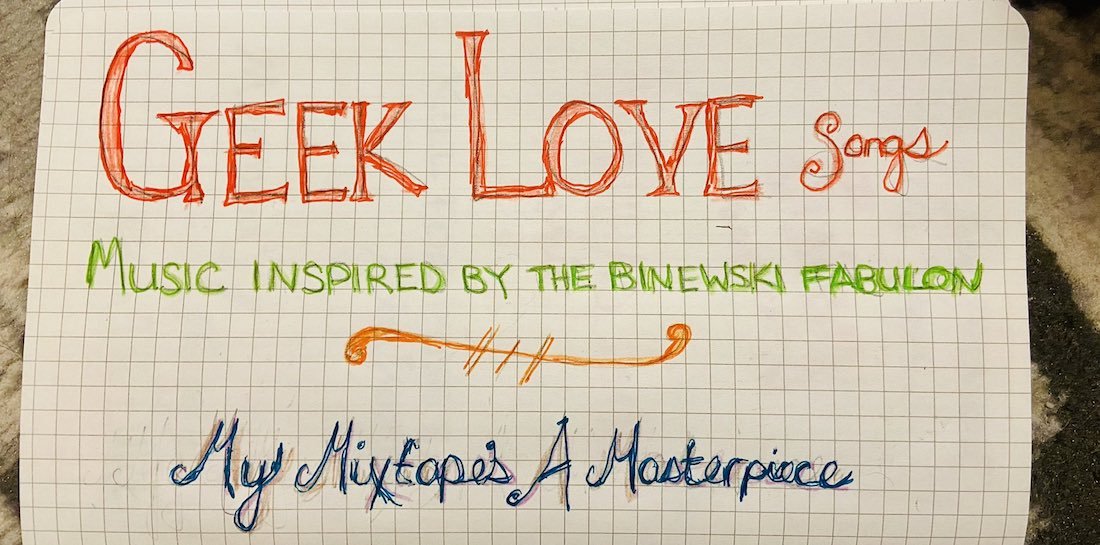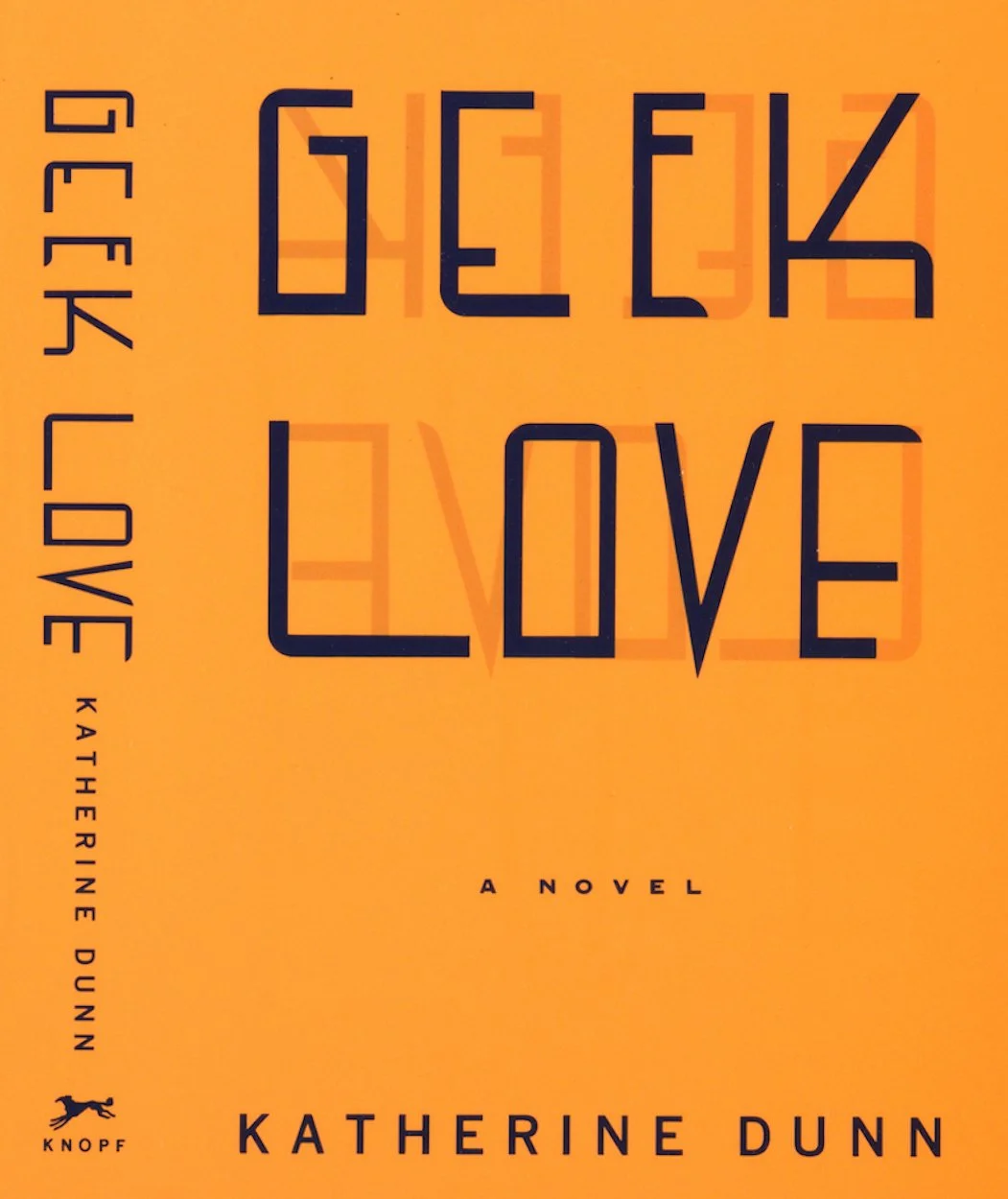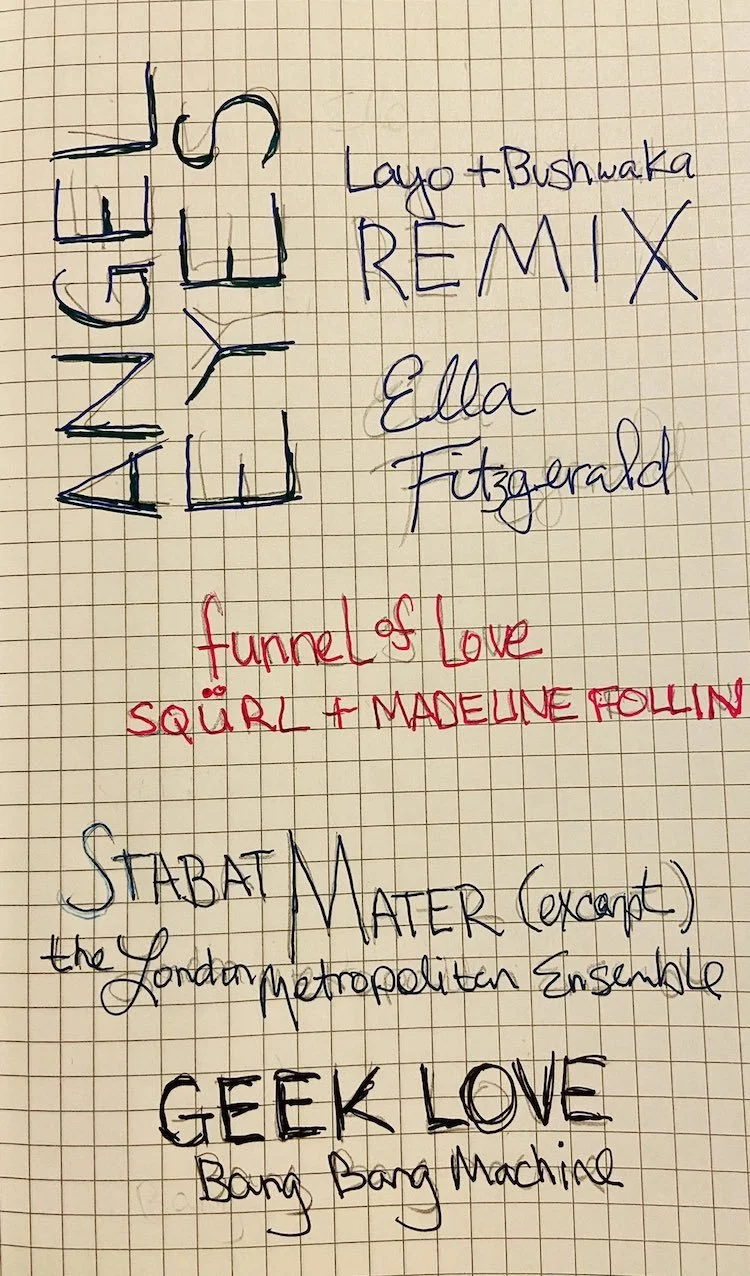Geek Love Songs
My Mixtape’s A Masterpiece is a weekly feature in which a guest compiles a playlist around some theme. This week, Taffeta V. assembles 13 tracks inspired by Katherine Dunn’s book Geek Love. Read Taffeta’s thoughts on each song and listen along to the Spotify and YouTube playlists below.
Katherine Dunn’s Geek Love is so important to me that it’s almost hard to even talk about. I bought it at Elliott Bay Books the year it came out. I was 18, but had already had a lifelong obsession with old circus and in particular, sideshow. It was immediately life changing, part of my origin story - achingly important and urgent to me somehow. A decade later, I actually became a carny, performing with a traveling sideshow. I was called RedBetty then, and I laid on beds of nails and did whip tricks and ate fire, among other things.
I read Geek Love that first time in 1989, then immediately re-read it, and then every time I finished I started over and read it again. I read it for almost a year straight through. I still re-read it annually. I have a more emotionally intimate relationship with some of the characters in this book than I do with my own family.
This bit right here, these three sentences pierced right through me the first time I read it, and still feel just as painfully accurate now, over 30 years later:
"That's my curse. I'm a freak but not much of a freak. I'm like you, fucked up without being special. There's nothing unique about me except my brains, and the crowd can't see that."
Geek Love is the story of the Binewski family. Circus people. Freaks by design. This music is inspired by the characters and world of the Binewski Fabulon. The songs are tinged with madness and a bit of melancholy—just like Katherine Dunn’s book.
1. “Carnival (Brunello del Montalcino)” by Tom Waits
Just a little dark circus-y instrumental piece to set the tone for life as a carny.
2. “Caruso” by Gavin Friday
This song speaks to me of Papa, a.k.a. Aloysius Binewski: ringmaster, grand raconteur, and benevolent patriarch of the Fabulon family. Like him, it is exceptionally romantic, theatrical, and quite mad.
3. “Cherry-Coloured Funk” by Cocteau Twins
Lillian Hinchcliff Binewski, Mama, Crystal Lil. Al was besotted with her upon first sight: a fine woman from a Boston family, a blonde with LEGS who wore Midnight Marzipan perfume. In the first few paragraphs of the book he describes her as “looking like angelfood”, and “three scoops of vanilla”. Before she was the mother of his children, she was The Geek, wearing all white (to better show the blood in the dark of the pit), and she made “the nipping off of noggins such a crystal mystery that the hens themselves yearned toward her, waltzing around her, hypnotized with longing”. She was so beloved by her husband and her children, though in the end she was quite lost to the world, reeling in the un-sane place her mind had become. So this song makes me think of Crystal Lil, beautiful and lilting and totally unintelligible.
4. “Little Wonder (Danny Saber Unplugged Mix)” by David Bowie
The book opens with Papa telling a story to the children, his Dreamlets, about how they came to be. This song is perfect because it starts soft like a nursery rhyme, a bedtime story, but it builds like the arc of the story, with the energy of a carnival Talker.
(We don’t call them “barkers” in the sideshow—saying “barker” identifies you as an outsider, a rube. To us, they are Talkers.)
5. “Uprising” by Muse
Arturo is the eldest of the Binewski children, a brilliant mind in a special body - strong and broad and handsome, with no limbs, just flipper-esque hand/feet appendages attached directly to his shoulders and hips. He is a voracious reader, hungry for power and with ideas grander and more dangerous than his father’s. The anthemic vibe of this song feels like the early days of his Big Idea, when he begins to come into his own and starts to cultivate a following and a philosophy that eventually tears the family and the Fabulon asunder.
6. “Pain” by Oingo Boingo
Arty’s dark heart and vicious vision evolve into an actual cult, Arturism. He attracts people who feel Othered, outside of the typical world, freakish. They seek to belong, and Arty is happy to lead them. They worship him, and as shows of faith they mutilate themselves and amputate portions of their bodies, transforming from freaks on the inside to freaks on the outside. Pain is love. Love is pain. This is the song befitting the later stages of the cult.
7. “Tender Lumplings” by Oingo Boingo
This little 38-second piece is slightly grotesque and a nice coda to the songs of Arturo’s ascent, and eventual decline into the carnival of chaos and destruction that would befall his family.
8. “Cry Little Sister” by Tangerine Dream
Olympia is our narrator. She is considered average and not particularly special by the standards of the family, as she is merely a girl with a hunchback, achondroplastic dwarfism, and albinism. This is benign and combined with her middle child status, she is insecure and adrift and deeply needful of love and attention, which she mostly does not receive. She has an incredibly complicated relationship with Arturo, whom she loves deeply and serves completely. This song is a darker version of the one most people remember from THE LOST BOYS, and it hits the right tone for her ever broken and neglected heart.
9. “Shipwrecked” by Sky Cries Mary
Fortunato is the baby of the family, he is a golden child who appears perfectly “normal” (what a loaded term, but you feel me here) in all ways, blonde and pink-skinned and shining boy with a warmth and love that is entirely bizarre to our nomadic family of misfits…UNTIL. Until one day he displays an invisible power that catapults him to being the most precious and profitable of the Binewski offspring, enraging Arty. This beautiful song sounds to my ears like his innocence, but there is a certain roiling and unsettled quality to it that is like a harbinger of the sadness that will come.
10. “Angel Eyes (Layo & Bushwacka Remix)” by Ella Fitzgerald
In the present-day storyline of the book, three generations of Binewski women reside in a boarding house, and Olympia is the only one who knows. It’s run by the now quite unhinged and almost entirely blind and deaf Crystal Lil, who does not recognize her own daughter.
A beautiful young artist named Miranda lives there; she is the daughter Olympia gave up in infancy, and she is totally unaware that the landlord is her grandmother and that her mother is the strange small woman down the hall. This song has a ghostly sound, and the lyrics speak of performing usefulness and happiness while choking down the sadness of heartache. The layers of old and new in this version of “Angel Eyes” seem appropriate, particularly since the original artist would have had no idea this remix exists.
11. “Funnel of Love” by SQÜRL and Madeline Follin
Electra and Iphigenia are conjoined twins, adolescents. Their relationship is deeply fraught and the normal struggles of yearning for love and sex are obviously complicated further by their literal connection. The raspy and worn, droning quality of this version suits the dusty roughness of life on the road and ragged young hearts. It’s all the more perfect because it references a classic dark ride on the midway.
12. “Stabat Mater” by The London Metropolitan Ensemble
This is a segment of a 13th century hymn, in English, meaning “the tearful mother”. As the various plots of the novel climax, there are multiple mothers in agony. The twins give birth to a child who is killed, then they die; Olympia has a child she must give up; Crystal Lil sees her entire family blown to pieces, leaving almost everyone dead. When the final explosive moment of the sideshow happens, ending it all, Olympia grinds her teeth to powder from grief.
13. “Geek Love” by Bang Bang Machine
This song was like a present just for me, hidden for decades. I heard it for the first time last year, and honestly I have absolutely NO IDEA HOW I MISSED it originally. It came out in 1993, from the English shoegaze band Bang Bang Machine—right when I was knee deep in my drone-y shoegaze phase. I love the dreamy, ethereal sound of it, but what makes it so special is that it was inspired by the book. And it’s not just garden variety suggested by, these people clearly really knew and loved the book. There are only a few lines of lyrics, but every word is torn from these pages so sacred to me. They name the names of the Binewskis who floated in jars, they speak of that which is unrequited. It’s nine minutes long and an epic outro for my most beloved of bedtime stories.





